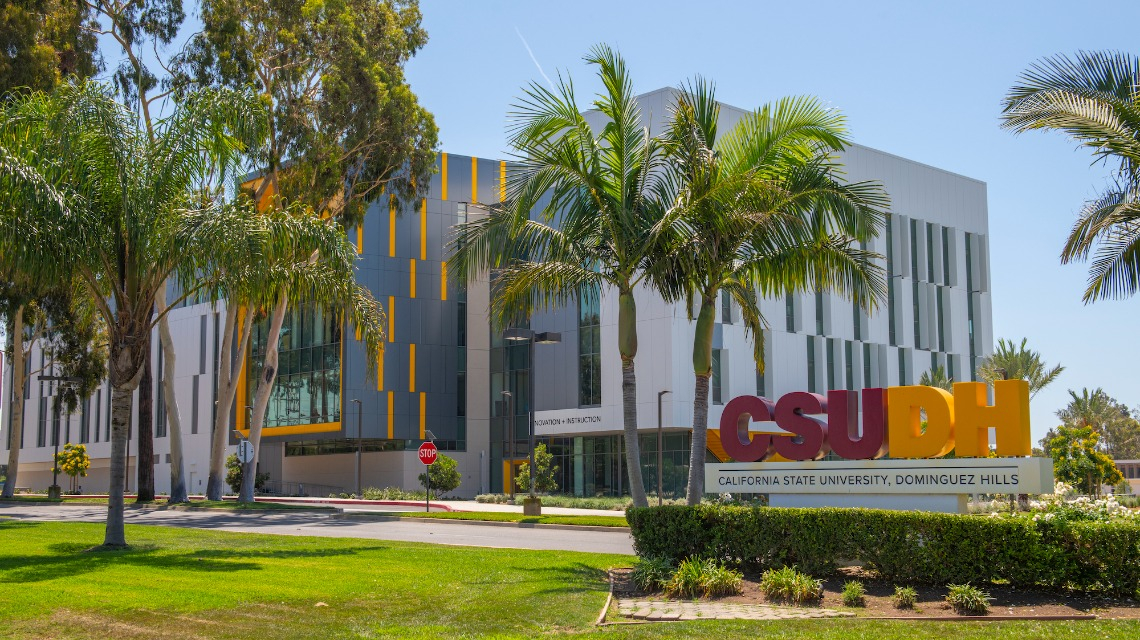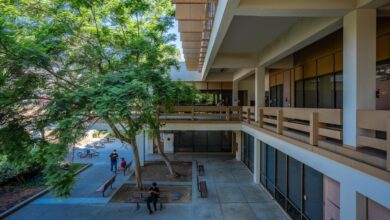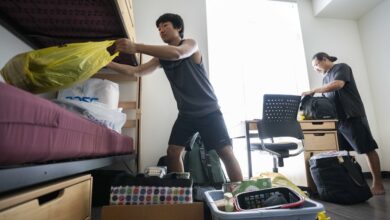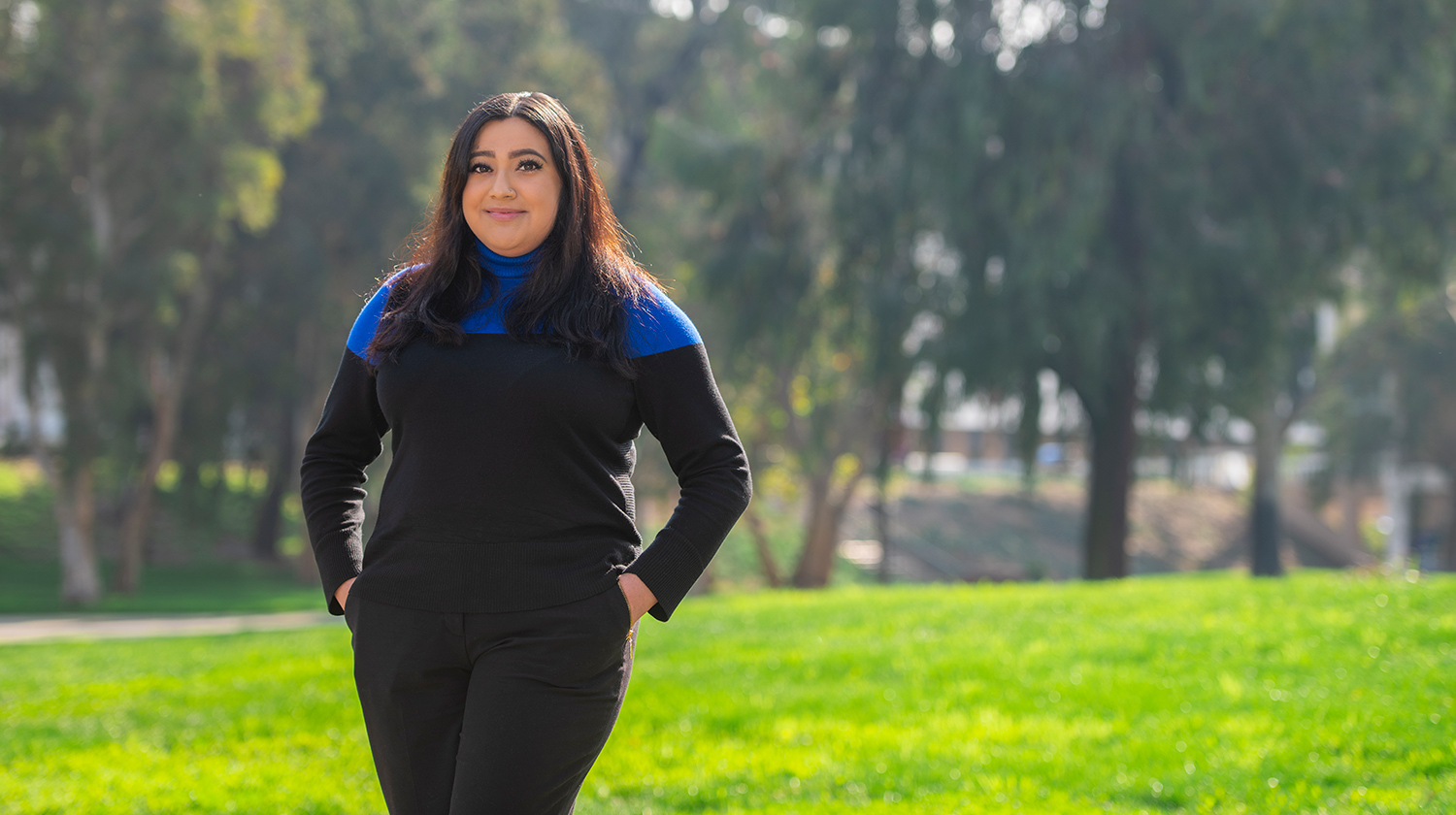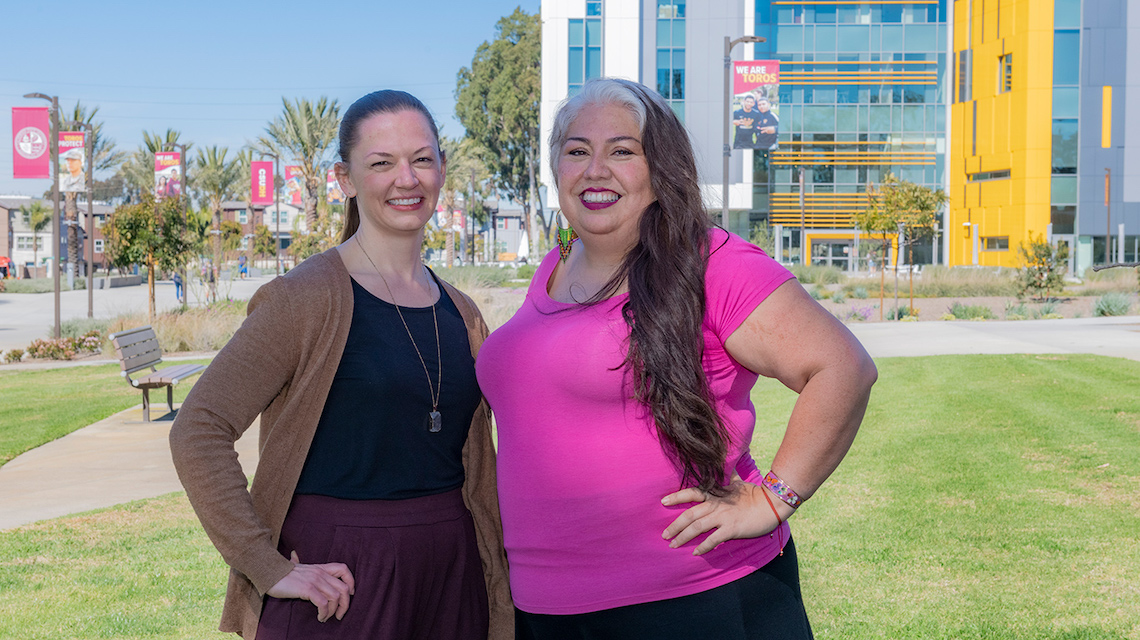
For the families of first-generation college students, universities can seem unfamiliar and inaccessible. New terminologies and processes can alienate students and their parents, who want to be able to provide support and guidance to their children. Two faculty members at CSUDH are trying to change that dynamic through the Parent Leadership Academy–a forum through which parents can connect, share knowledge, and navigate CSUDH together.
Assistant Professor Yesenia Fernández and Associate Professor Jen Stacy, both in the College of Education, pitched the idea of a parent academy for President Thomas Parham’s President’s Challenge competition in 2020. After their idea received funding, they started with a very small group of parents to get a sense of what parent involvement was like at CSUDH.
“Rather than creating a space where we just talk at parents, we generated a network of parents and a space where parents’ voices were centered,” Fernández said. “When you bring a group of parents together, they help each other out.”
The small initial group grew when Fernández and Stacy began giving information sessions about the academy at New Student Orientation in 2020. More than 50 parents of new Toros signed up, and the academy has held regular Zoom conversations ever since.
Dialogues range from institutional processes such as financial aid, class schedules, and COVID-19 protocols, to questions about the student experience. Parents talk about how to support their children, share resources, and even arrange carpools with one another. Importantly, parents also help to plan the sessions themselves–ensuring that their expertise, concerns, and questions remain at the heart of the conversations. The parents and facilitators speak in both Spanish and English, translating throughout meetings so that everyone is included.
Fernández, once a first-generation college student herself, says that the Parent Leadership Academy is about bridging the connection between academia and the home–allowing students to be their authentic selves both on campus and with family.
“First-generation students often feel alone, because they can’t be themselves in academia,” she said. “By creating spaces where families are welcome, you can bridge that chasm and counteract the imposter syndrome that first-generation students often feel.”
Stacy added that, because CSUDH’s mission and vision is rooted in social justice and the notion of transformation, the university must be responsive to the communities it serves.
“Our mission is an open door to people of all walks of life to find their educational path with us,” Stacy said. “This is just one way that we can rethink that and do it differently–to transform our institution to be more in tune with our community.”


